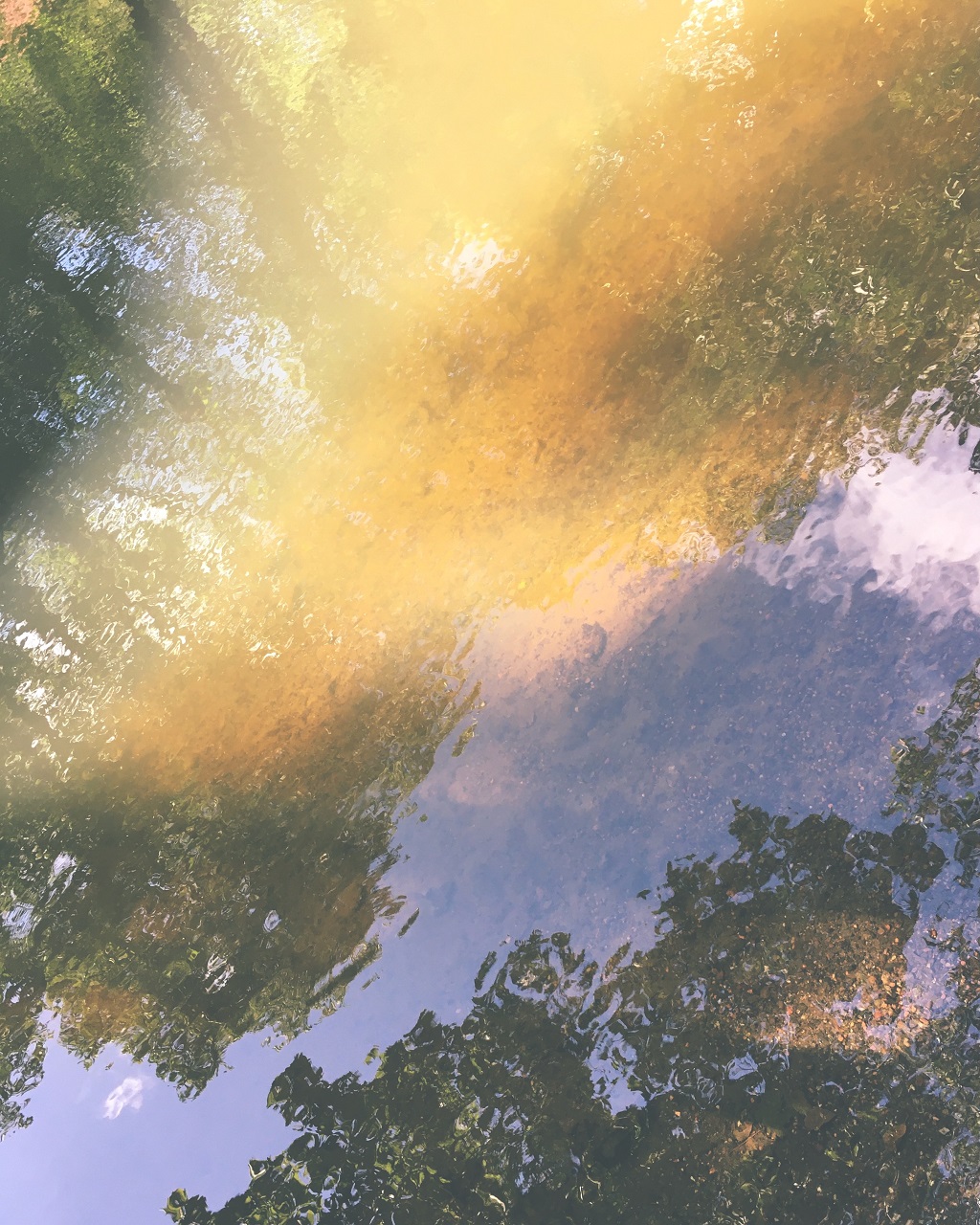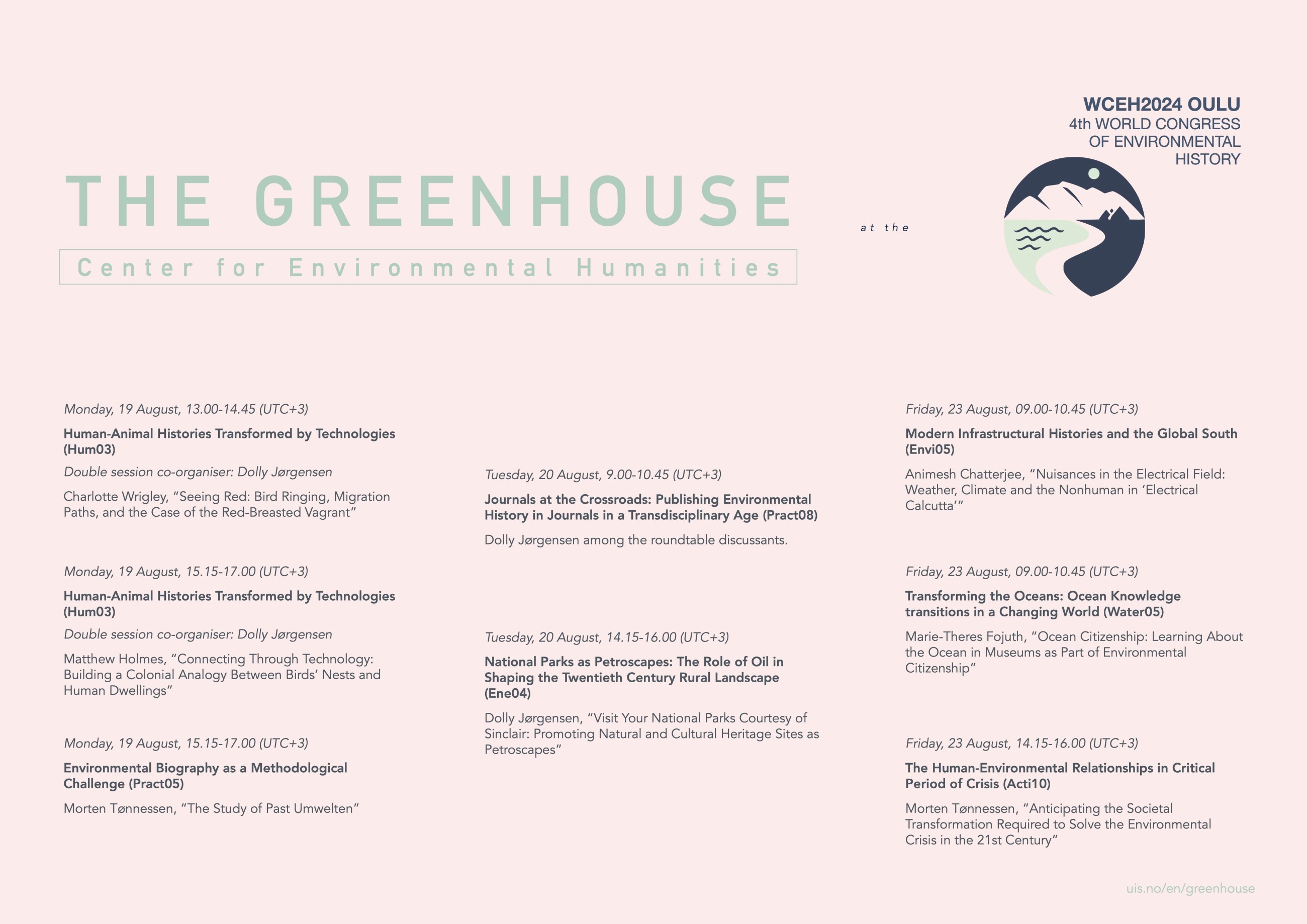The Fourth World Congress of Environmental History will take place at the University of Oulu, Finland from 19 to 23 August, 2024.

Next week, the World Congress of Environmental History (WCEH) is held for the fourth time. While previously the world congress has been held in Copenhagen, Denmark (2009), Guimarães, Portugal (2014), Florianópolis, Brazil (2019), in 2024 the turn has come to Oulu, Finland, to be host to the international community of environmental historians.
“Events like the World Congress are important for maintaining the environmental history community,” states Greenhouse co-director Finn Arne Jørgensen. “While online meetings can be fine for sharing research talks, nothing can replace the intense communal atmosphere at in-person conferences,” he adds. “Sauna, walks, coffee, drinks, random meetings in elevators and hallways – all these are important for making connections and building the research community.”
“Events like the World Congress are important for maintaining the environmental history community”
Having participated in all the congresses since the first one, Greenhouse members will also be speaking about their research at the 2024 Oulu meeting in eight different sessions. Below you can find an overview of the sessions with Greenhouse members.

Session overview
Human-Animal Histories Transformed by Technologies (Hum03)
Monday, 19 August, 13.00-14.45 (UTC+3)
Double panel co-convened by Dolly Jørgensen.
Charlotte Wrigley, “Seeing Red: Bird Ringing, Migration Paths, and the Case of the Red-Breasted Vagrant”
Human-Animal Histories Transformed by Technologies (Hum03)
Monday, 19 August, 15.15-17.00 (UTC+3)
Double-panel co-convened by Dolly Jørgensen.
Matthew Holmes, “Connecting Through Technology: Building a Colonial Analogy Between Birds’ Nests and Human Dwellings”
Environmental Biography as a Methodological Challenge (Pract05)
Monday, 19 August, 15.15-17.00 (UTC+3)
Morten Tønnessen, “The Study of Past Umwelten”
Journals at the Crossroads: Publishing Environmental History in Journals in a Transdisciplinary Age (Pract08)
Tuesday, 20 August, 9.00-10.45 (UTC+3)
Dolly Jørgensen among the roundtable discussants.
National Parks as Petroscapes: The Role of Oil in Shaping the Twentieth Century Rural Landscape (Ene04)
Tuesday, 20 August, 14.15-16.00 (UTC+3)
Dolly Jørgensen, “Visit Your National Parks Courtesy of Sinclair: Promoting Natural and Cultural Heritage Sites as Petroscapes”
Modern Infrastructural Histories and the Global South (Envi05)
Friday, 23 August, 9.00-10.45
Animesh Chatterjee, “Nuisances in the Electrical Field: Weather, Climate and the Nonhuman in ‘Electrical Calcutta’”
Transforming the Oceans: Ocean Knowledge transitions in a Changing World (Water05)
Friday, 23 August, 9.00-10.45
Marie-Theres Fojuth, “Ocean Citizenship: Learning About the Ocean in Museums as Part of Environmental Citizenship”
The Human-Environmental Relationships in Critical Period of Crisis (Acti10)
Friday, 23 August, 14.15-16.00
Morten Tønnessen, “Anticipating the societal transformation required to solve the environmental crisis in the 21st century”